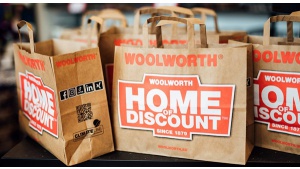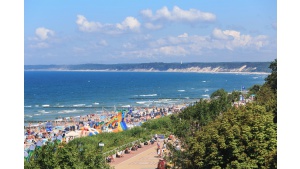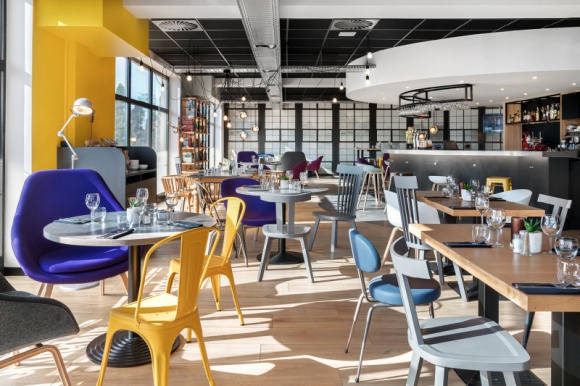Campanile and the European market: important hotels in the brand’s history
From a family chain of suburban hotel-restaurants to a global brand offering innovative facilities designed with the climatic challenges of the 21st century in mind and located in strategic metropolitan regions – the Campanile brand have been embracing the spirit of changing times for over 40 years. Here are some of the most pivotal hotels in the history of its expansion on the European market.
Campanile was created in France in 1976 as a family business – a concept of suburban hotel-restaurants where travellers could truly feel at home. Sincere and cordial hospitality continues to underpin the identity of the brand which today is present in 13 countries worldwide and is bracing for yet another bout of global expansion with the goal of strengthening its presence in Europe and China and entering the markets of Africa, the Middle East, India, Southeast Asia and Australia. Historic Campanile hotels are undergoing bold transformations while the newly constructed facilities stand at the forefront of the most recent trends. What were the milestones in the brand’s history?
Campanile Birmingham: in the vanguard of change
In 1986, the chain began its expansion on the far side of the English Channel. The first Campanile hotel in Great Britain opened in Basildon in the South East of England. Today, 17 Campanile facilities operate in the UK. One of them is Campanile Birmingham, opened in 1999. On its 20th anniversary, the hotel has undergone a £ 2.5 million retrofit that transformed it into the flagship of the British Campanile fleet. The transformation of the Birmingham facility into a hotel that expresses traditional brand values in a modern form marks the beginning of a new chapter in Campanile’s history in the UK. All British hotels of the brand are scheduled to undergo a similar change in the coming years.
Campanile Eindhoven: a classic
Opened in 1989, the hotel in Eindhoven is the first Campanile in the Netherlands and one of the last facilities built according to the original idea of the brand – a hotel-restaurant with a characteristic sloping roof and exterior corridors. Over the years, it has gained the recognition of both local foodies and guests visiting the dynamically developing city for business purposes. In 2019, the hotel underwent a complete renovation. It continues to serve as a true showcase of the classic Campanile concept and remains a friendly haven for guests from all over the world.
Campanile Barcelona: an Olympic innovation
The Campanile brand entered Spain in 1992 during the XXV Summer Olympics in Barcelona. Barberà del Vallès – a well-connected area situated north of the centre of the Olympic host city – was selected as the location for the first site of the chain. During the games, the controversial athlete Ben Johnson had his base here. The architecture of the 210-room facility signals a transitional moment in the history of the Campanile concept, combining a modern single-building structure with architectural elements reminiscent of the external corridors characteristic of the early hotels of the brand.
Campanile Katowice: a new edition of a 90s hit
At the end of the last century, the hospitality landscape of Katowice was still dominated by buildings taken straight out of the communist reality. Everything changed in 1999, when the ribbon was cut at the entrance to the first Campanile facility in Poland. Situated on the edge of the picturesque Three Ponds Valley, the hotel immediately became a hit, offering what the “tigers of Europe” fancied the most. A curious geometric shape, glass façade, air-conditioned interiors decorated in a Provencal fashion – all this corresponded with the idea of Western standards and was a sign of luxury in line with the new era. The fascination with the West went hand in hand with the local colour thanks to the hotel’s restaurant, famous for its delicious Silesian cuisine. The hotel is still a monument to the somewhat crazy times of the Polish transformation, but it does not thrive on former glory alone. In recent years, the facility has undergone a great transformation of its own and today it offers a stay in a 21st century standard with a pinch of the 90s nostalgia.
Campanile Vienna South: in a modern garden city
The first Campanile hotel in Austria is located in the most innovative district of Vienna, in a residential and services complex growing in the green areas of Wienerberg and designed in line with the Biotope City concept – a city living in harmony with the surrounding nature. The project is part of the revitalization of Coca-Cola’s former production plants which began in 2017. Ultimately, an environmentally friendly, self-sufficient district will be created here – an urban jungle in the best sense of the word. The showpiece of the investment is The Brick, a building whose name and exteriors invoke the memories of an old brickyard once located at Wienerberg. It is within The Brick’s climate-neutral walls where the new Campanile Vienna South hotel hosts its guests.
About Campanile
The Campanile hotel-restaurants were founded in 1976 based on the values of conviviality and authenticity. Today, Campanile has 380 hotels worldwide and is the 4th largest restaurant network in France. The brand has opened ten hotels in China over the past few years and launched development in the Middle East in 2018. The Campanile concept is exporting around the globe, with over 350 projects in the pipeline.
About Louvre Hotels Group
Louvre Hotels Group is a major player in the global hospitality industry, with a portfolio that now includes more than 1,500 hotels in 54 countries. It has a full hotel offering, spanning 1 star to 5 stars, with the Louvre Hotels Group’s historic brands (Royal Tulip, Golden Tulip, Campanile, Tulip Residences, Kyriad, Kyriad Direct, Tulip Inn, and Première Classe), the 5 brands of the Sarovar network in India, the French Group Hôtels & Préférence and the brand TemptingPlaces, and Chinese brand Metropolo. The group also has a distribution agreement with the Barrière Group. Louvre Hotels Group is a subsidiary of Jin Jiang International Holdings Co., Ltd., the 2th hospitality group in the world.

Smart travel w 5 krokach. Jak wypocząć i nie przepłacić?

Polacy rezerwują wczasy na ostatnią chwilę

Mateusz Waligóra przejechał zimą pustynię Gobi na rowerze. Samotnie.
Więcej ważnych informacji
 Jedynka Newserii
Jedynka Newserii

 Jedynka Newserii
Jedynka Newserii

Konsument

Polacy nie korzystają z hossy trwającej na warszawskiej giełdzie. Na wzrostach zarabiają głównie inwestorzy zagraniczni
Od października 2022 roku na rynkach akcji trwa hossa, nie omija ona także warszawskiej giełdy. Mimo to inwestorzy indywidualni odpowiadają zaledwie za kilkanaście procent inwestycji, a o wzrostach decyduje i na nich zarabia głównie kapitał z zagranicy. Widać to również po napływach i odpływach do i z funduszy inwestycyjnych. Zdaniem Tomasza Koraba, prezesa EQUES Investment TFI, do przekonania Polaków do inwestowania na rodzimej giełdzie potrzeba zysków z akcji, informacji o tych zyskach docierającej do konsumentów oraz czasu.
Polityka
Obowiązek zapełniania magazynów gazu w UE przed sezonem zimowym ma zapewnić bezpieczeństwo dostaw. Wpłynie też na stabilizację cen

Unia Europejska przedłuży przepisy z 2022 roku dotyczące magazynowania gazu. Będą one obowiązywać do końca 2027 roku. Zobowiązują one państwa członkowskie do osiągnięcia określonego poziomu zapełnienia magazynów gazu przed sezonem zimowym. Magazyny gazu pokrywają 30 proc. zapotrzebowania Unii Europejskiej na niego w miesiącach zimowych. Nowe unijne przepisy mają zapewnić stabilne i przystępne cenowo dostawy.
Infrastruktura
Gminy zwlekają z uchwaleniem planów ogólnych zagospodarowania przestrzennego. Może to spowodować przesunięcie terminu ich wejścia w życie

Reforma systemu planowania i zagospodarowania przestrzennego rozpoczęła się we wrześniu 2023 roku wraz z wejściem w życie większości przepisów nowelizacji ustawy z 27 marca 2003 roku. Uwzględniono w niej plany ogólne gminy (POG) – nowe dokumenty planistyczne, za których przygotowanie mają odpowiadać samorządy. Rada Ministrów w kwietniu br. uchwaliła jednak ustawę o zmianie ustawy z 7 lipca 2023 roku, a jej celem jest zmiana terminu obowiązywania studiów uwarunkowań i kierunków zagospodarowania przestrzennego gmin na 30 czerwca 2026 roku. Wskazana data może nie być ostateczna z uwagi na to, że żadna z gmin nie uchwaliła jeszcze POG.
Partner serwisu
Szkolenia

Akademia Newserii
Akademia Newserii to projekt, w ramach którego najlepsi polscy dziennikarze biznesowi, giełdowi oraz lifestylowi, a także szkoleniowcy z wieloletnim doświadczeniem dzielą się swoją wiedzą nt. pracy z mediami.









.gif)

 |
| |
| |
|